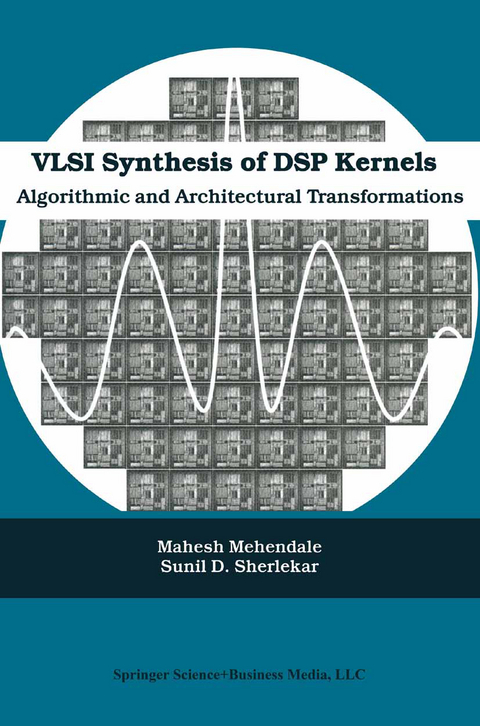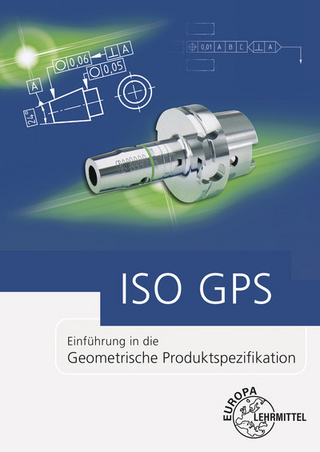
VLSI Synthesis of DSP Kernels
Algorithmic and Architectural Transformations
Seiten
2001
Springer (Verlag)
978-0-7923-7421-3 (ISBN)
Springer (Verlag)
978-0-7923-7421-3 (ISBN)
A critical step in the design of a DSP system is to identify for each of its components (DSP kernels) an implementation architecture that provides the desired degree of flexibility/programmability and optimises the area-delay-power parameters. This book covers the entire solution space comprising hardware multiplier-based.
A critical step in the design of a DSP system is to identify for each of its components (DSP kernels) an implementation architecture that provides the desired degree of flexibility/programmability and optimises the area-delay-power parameters. The book covers the entire solution space comprising both hardware multiplier-based and multiplex-less architectures that offer varying degrees of programmability. For each of the implementation styles, several algorithmic and architectural transformations are proposed so as to optimally implement weighted-sum based DSP kernels over the area-display-power space.
VLSI Synthesis of DSP Kernels presents the following: Six different target implementation styles -
Programmable DSP-based implementation;
Programmable processors with no dedicated hardware multiplier;
Implementation using hardware multiplier(s) and adder(s);
Distributed Arithmetic (DA)-based implementation;
Residue Number System (RNS)-based implementation; and
Multiplier-less implementation (using adders and shifters) for fixed coefficient DSP kernels.
For each of the implementation styles, description and analysis of several algorithmic and architectural transformations aimed at one or more of reduced area, higher performance and low power;
Automated and semi-automated techniques for applying each of these transformations; and
Classification of the transformations based on the properties that they exploit and their encapsulation in a design framework. A methodology that uses the framework to systematically explore the application of these transformations depending on the characteristics of the algorithm and the target implementation style.
VLSI Synthesis of DSP Kernels is essential reading for designers of both hardware- and software-based DSP systems, developers of IP modules for DSP applications, EDA tools developers, researchers and managers interested in getting a comprehensive overview of current trends and future challenges in optimal implementations of DSP kernels. It will also be suitable for graduate students specialising in the area of VLSI Digital Signal Processing.
A critical step in the design of a DSP system is to identify for each of its components (DSP kernels) an implementation architecture that provides the desired degree of flexibility/programmability and optimises the area-delay-power parameters. The book covers the entire solution space comprising both hardware multiplier-based and multiplex-less architectures that offer varying degrees of programmability. For each of the implementation styles, several algorithmic and architectural transformations are proposed so as to optimally implement weighted-sum based DSP kernels over the area-display-power space.
VLSI Synthesis of DSP Kernels presents the following: Six different target implementation styles -
Programmable DSP-based implementation;
Programmable processors with no dedicated hardware multiplier;
Implementation using hardware multiplier(s) and adder(s);
Distributed Arithmetic (DA)-based implementation;
Residue Number System (RNS)-based implementation; and
Multiplier-less implementation (using adders and shifters) for fixed coefficient DSP kernels.
For each of the implementation styles, description and analysis of several algorithmic and architectural transformations aimed at one or more of reduced area, higher performance and low power;
Automated and semi-automated techniques for applying each of these transformations; and
Classification of the transformations based on the properties that they exploit and their encapsulation in a design framework. A methodology that uses the framework to systematically explore the application of these transformations depending on the characteristics of the algorithm and the target implementation style.
VLSI Synthesis of DSP Kernels is essential reading for designers of both hardware- and software-based DSP systems, developers of IP modules for DSP applications, EDA tools developers, researchers and managers interested in getting a comprehensive overview of current trends and future challenges in optimal implementations of DSP kernels. It will also be suitable for graduate students specialising in the area of VLSI Digital Signal Processing.
1. Introduction.- 2. Programmable DSP Based Implementation.- 3. Implementation Using Hardware Multiplier(s) and Adder(s).- 4. Distributed Arithmetic Based Implementation.- 5. Multiplier-Less Implementation.- 6. Implementation of Multiplication-Free Linear Transforms.- 7. Residue Number System Based Implementation.- 8. A Framework for Algorithmic and Architectural Transformations.- 9. Summary.- References.- Topic Index.- About the Authors.
| Erscheint lt. Verlag | 30.6.2001 |
|---|---|
| Zusatzinfo | XXIV, 210 p. |
| Verlagsort | Dordrecht |
| Sprache | englisch |
| Maße | 156 x 234 mm |
| Themenwelt | Mathematik / Informatik ► Informatik ► Theorie / Studium |
| Informatik ► Weitere Themen ► CAD-Programme | |
| Technik ► Elektrotechnik / Energietechnik | |
| ISBN-10 | 0-7923-7421-5 / 0792374215 |
| ISBN-13 | 978-0-7923-7421-3 / 9780792374213 |
| Zustand | Neuware |
| Haben Sie eine Frage zum Produkt? |
Mehr entdecken
aus dem Bereich
aus dem Bereich
Buch | Softcover (2023)
Beuth (Verlag)
99,00 €
Einführung in die Geometrische Produktspezifikation
Buch | Softcover (2023)
Europa-Lehrmittel (Verlag)
20,70 €


